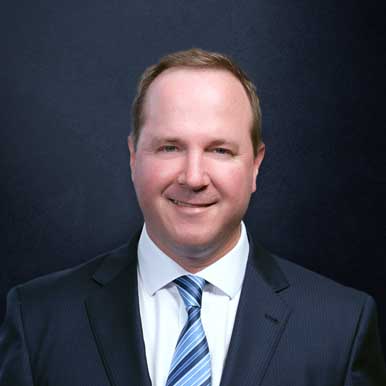Just What the Doctor Ordered: Second District Permits Trade Secret Protection for Physician Productivity Data
March 11, 2021 | Employment Articles

At the end of 2020, California’s Second District Court of Appeal decided Coast Hematology-Oncology Associates Medical Group, Inc. v. Long Beach Memorial Medical Center,[i] a case involving rival medical groups and allegations of trade secret misappropriation, interference with prospective economic advantage, interference with a contract, and unfair competition.
Of particular note are the court’s holdings on one of the plaintiff’s trade secret claims and its tortious interference claims. First, the court held that physician productivity data is protectable as trade secret information, even though that data is produced using a standard metric. Second, as to tortious interference with an at-will employment relationship, the court reiterated and reaffirmed the requirement that the defendant’s “wrongful means” actually cause the at-will employee to leave his employer.
Background
The dispute in the case resulted from failed negotiations between two competing Southern California medical groups, Coast Hematology-Oncology Associates Medical Group, Inc. (“Coast”) and Long Beach Memorial Medical Center (“Memorial”). Memorial initially sought to purchase Coast. But when several years of negotiations proved unsuccessful, Memorial instead recruited several Coast employees, including two physicians, to come work for its hospital.
Coast alleged that in recruiting these two physicians, Memorial unlawfully interfered with their at-will employment relationships with Coast. Coast also alleged that Memorial misappropriated two types of trade secret information from Coast. On appeal, the Second District sided with Memorial on all but one claim, the alleged misappropriation of the second trade secret.
Physician productivity data: Standard metrics can produce trade secret information
Coast’s second type of allegedly trade secret information involved “RVU,” or “Relative Value Unit,” information. RVU is a standard metric used to identify how difficult and compensable one medical procedure is relative to others. It recognizes that all procedures are not created equal: a coronary bypass is far more involved than a routine check-up.
RVUs are widely used in the medical industry to determine physician productivity, and Coast was no exception. The more RVUs a Coast physician had, the more productive he or she was considered. Coast sought to classify its firm-wide productivity records as trade secret information.[ii]
The Second District sided with Coast. In so doing, the court rejected the idea that RVUs are “merely” a standard metric. Rather, the court held that a standard metric can produce trade secret information if these metrics are used to create “firm-specific information.”[iii] The court analogized to thermometers and bathroom scales, both of which use standard metrics to generate information known only to the generator of that information and thus confidential unless shared. Standard metrics can therefore generate information that can meet the statutory requirements of a trade secret: the information can have value by virtue of not being publically known, and a firm can take reasonable measures to ensure the secrecy of this information.
Consequently, the massive “stockpile” of physician data, which revealed the relative productivity of all physicians at Coast, could qualify as trade secret information.
Unlawful interference: The “wrongful means” must actually cause an at-will employee’s exit
The court also clarified that, in the context of a claim for interference with an at-will employment relationship, the “wrongful conduct” requirement must cause the at-will employee’s exit.
Coast had argued that Memorial’s misappropriation of Coast’s trade secret information constituted sufficiently wrongful conduct to state a claim for tortious interference, but the court sharply disagreed. The court emphasized that in past California cases “the wrongful conduct directly caused the employees to choose to quit.”[iv] But here, the court reasoned, the alleged misappropriation of trade secrets did not cause the physicians’ departures. Rather, the employees were simply pursuing a better opportunity at Memorial and only left Coast after giving proper notice. Their departures therefore reflected “robust competition between Memorial and Coast, not underhanded skullduggery.”[v]
Coast had produced no other evidence that Memorial had used any wrongful means to cause the two physicians from Coast to come work at Memorial.[vi] The court consequently affirmed summary judgment in favor of Memorial on this claim.
Takeaways
- Medical groups that collect data on physician productivity may be able to rely on trade secret protection for that data, provided the data otherwise meets the definition of trade secret.
- Standard metrics can produce protectable trade secret information because, while a metric may be standard, its application to specific persons, situations, or businesses may yield unique results that constitutes economically valuable information.
- Causation matters: claims for interference with at-will employment relationships require showing that the defendant’s allegedly wrongful act caused the disruption of the at-will relationship.
[i] Coast Hematology-Oncology Associates Medical Group, Inc. v. Long Beach Memorial Medical Center (2020) 58 Cal.App.5th 748 (Coast Hematology).
[ii] Coast Hematology at 16.
[iii] Id. at 15 (emphasis added).
[iv] Id. at 26 (emphasis added).
[v] Id. at 26. It is not clear whether Memorial ever argued that Coast’s tortious interference claim was preempted by California’s Uniform Trade Secrets Act.
[vi] Id. at 23.
Subscribe to our Blogs
Get notified when new posts are published.
